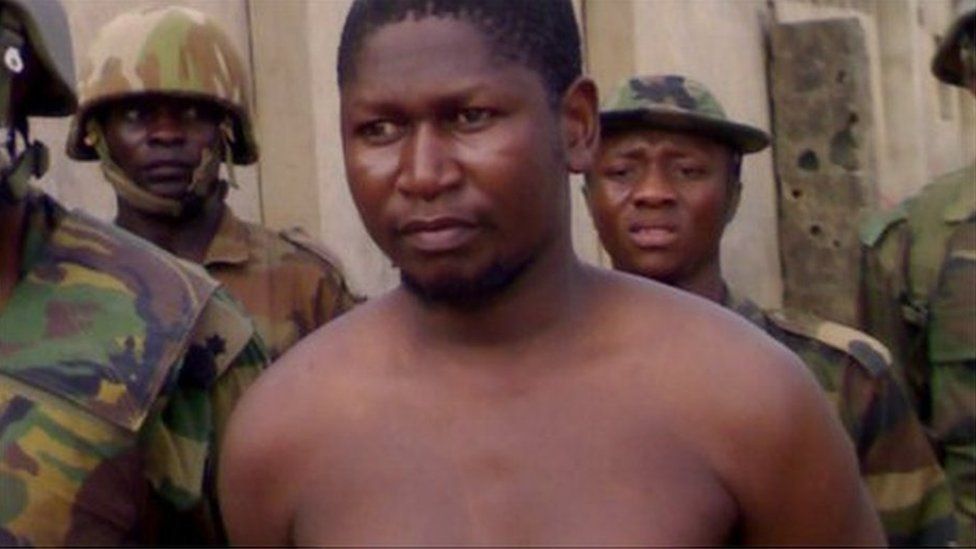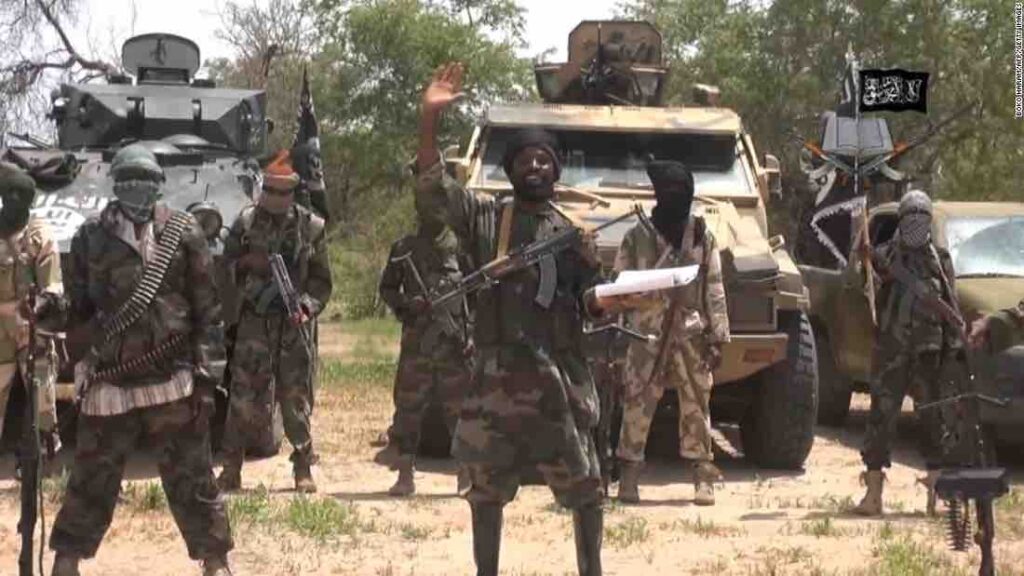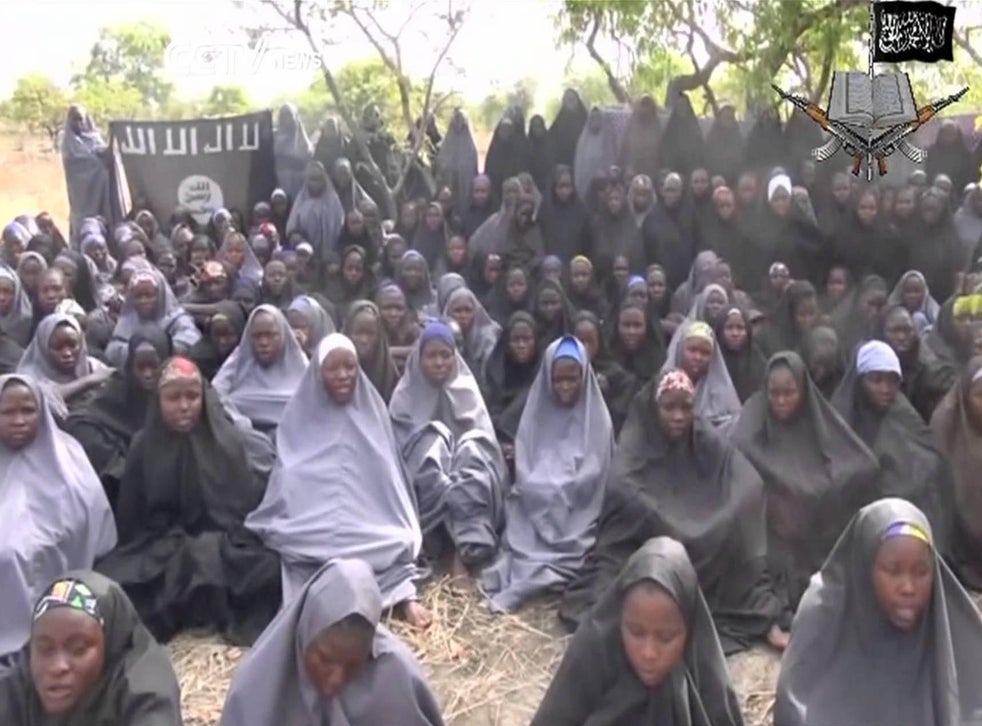Table of Contents
Introduction
Boko Haram is an Islamic extremist and terrorist group that is primarily active in Northeastern Nigeria. “Haram” is an Arabic word that means “forbidden”, while “Boko” means “fake” as per the Hausa language and refers to Western Education. Thus, Boko Haram means “Western education is forbidden”. The group considers western culture and its influence as a sin.
The original name of Boko Haram is Jama’atu Ahlis Sunna Lidda’awati wal-Jihad (which means Group of the People of Sunnah for Dawa and Jihad). The name “Boko Haram” was given by the people considering the activities of the group.
The motive of Boko Haram in Nigeria
Boko Haram was founded by a Muslim cleric, Mohammed Yusuf in 2002. He aimed to re-establish Islamic norms and laws that according to him were slowly perishing due to the western influence. Yusuf even constructed an Islamic school and mosque to support his cause. The movement proved to be successful and several people enrolled their children in the school.
Under the leadership of Mohammed Yusuf, Boko Haram was non-violent and only inclined towards the purification of Islam in Nigeria.

Courtesy – BBC
Boko Haram, when formed, advocated adherence to Sharia Law for the Muslims. The organization consists primarily of people from the Kanuri ethnic group.
In years to come, the group’s motive changed to the creation of the Islamic State (caliphate) and overthrowing the Nigerian government.
Violent operations by Boko Haram in Nigeria
The group was referred to as a jihadist group in 2009 when it started its violent operations. Boko Haram had its first Headquarters in Maiduguri (in Borno state) in Northeastern Nigeria.
It all started when Nigerian Police started investigating the group’s roots. In July 2009, multiple crackdowns were initiated by the Police and Boko Haram’s members were arrested. The ill-treatment of the arrested by the police created anger within the group. The group launched attacks on police stations and government buildings in Maiduguri killing many government officials and policemen. The army had to be called in to control the situation. The offensive left more than 700 Boko Haram members dead. Mohammed Yousuf was captured in the operation and handed over to the Police where he was later eliminated.
Boko Haram became inactive for some time after Yusuf’s death. Later, in a video from the group, Abubakar Shekau (a deputy of Yusuf) was declared its new leader. Under his leadership, the insurgency increased.

Courtesy – CNN
The Bauchi prison beak
The Bauchi prison break is one of the most popular incidents in the history of Boko Haram. On 7 September 2010, Boko Haram attacked the Bauchi prison in the Bauchi state that led to the release of over 700 inmates including over 100 Boko Haram members.
Links with terror outfits
With sophisticated weapons and tactics under their arsenal, Boko Haram was said to be linked with Al-Qaeda In Islamic Maghreb (AQIM) that was majorly active in Niger, and Al-Shabab in Somalia.
Maghreb is a region of North Africa that consists of Algeria, Libya, Mauritania, Morocco, and Tunisia.
More attacks
Originally, Boko Haram used gunmen on bikes to carry out attacks on people, policemen, and politicians. Later, they started to carry out attacks on Churches, Christian preachers, and Muslim clerics from other communities.
Abubakar Shekau is infamous for his atrocities on men, women, and children. He is also considered as someone who would not think twice before killing people from his community.
Over time, Boko Haram started using sophisticated methods for its operations. Improvised Explosive Devices (IEDs) are used to create terror and kill people. On 26 August 2011, the group attacked the United Nations headquarters in Abuja, killing at least 23 people and injuring over 100.
In January 2012, in one of the deadliest attacks, around 185 people lost their lives in the city of Kano where the group targeted police stations and government buildings. IEDs, car bombs, and suicide bombers were used to carry out the attack.
Violence continued under the leadership of Shekau either in the name of Yusuf’s killing or to create terror among people. Churches, government offices, and police convoys were the primary targets. Anyone who condemned or spoke against the group was eliminated.
State of Emergency in Nigeria due to Boko Haram
When Boko Haram was launching attacks, an etho-religious (Christians and Muslims) riot broke out in Nigeria as the military dictator, Muhammadu Buhari lost the elections against Goodluck Jonathan. There had been a tacit agreement that the country shall be run by a Muslim and a Christian rotating every 2 years. Goodluck Jonathan contesting and winning the elections broke that agreement.
Boko Haram took advantage of the situation and created a war-like situation. Almost 800 people died and thousands were displaced due to the riots.
In subsequent attacks, Boko Haram targeted Churches around the country on Christmas. In an incident in 2011, on Christmas Day, at least 37 people were killed in an attack on the Church on the outskirts of Abuja. More than 50 people were injured in the attack.
Days after the Church attacks, a state of emergency was declared by President Goodluck Jonathan in parts of Nigeria (Jos, Borno, Niger, and Yobe) to tackle the rise in the insurgency by the extremist Islamic group. The international border in northeastern Nigeria was also temporarily shut down.
Another state of emergency was declared in 2013 in the states of Borno, Yobe, and Adamawa considering the increased insurgency by Boko Haram. Due to the rise of violence, thousands of people were displaced and many fled the country.
Violation of Human Rights
The flipside of the conflict was the violation of human rights. The people captured were treated in an inhumane way, didn’t matter if they were part of Boko Haram or were just civilians.
Also, extrajudicial killings become a known part of the conflict. The police did what pleased them and killed scores of people in the supposed crackdowns.
Human rights groups condemned such acts. They were vociferous against the abuses by both the government agencies and Boko Haram.
Multinational Joint Task Force (MNJTF)
To tackle Boko Haram, Nigeria, Chad, Niger, Cameroon, and Benin came together to form a Multinational Joint Task Force to end Boko Haram’s insurgency.
The group was formed in 1998 to tackle terror and unlawful activities across the borders. As the insurgency of Boko Haram increased, MNJTF’s focus shifted to the extremist group. Today, MNJTF’s main goal is to fight against Boko Haram and end its leadership.
Amnesty for Abubakar Shekau
In 2013, President Goodluck Jonathan proposed amnesty for Shekau and the Boko Haram members if they willingly gave up their arms and surrendered. Abubakar Shekau rejected the proposal and launched a series of attacks shortly after in the town of Bama killing at least 50 people.
The kidnapping of Chibok girls
In 2014, Boko Haram abducted schoolgirls from Chibok. The reports say that the number was around 276.
Boko Haram has a reputation for abducting women, treating them as slaves, and marrying them off.
The world community condemned the act. The various countries offered help to initiate a crackdown on Boko Haram.

Courtesy – The Independent
57 of the girls abducted escaped the clutches of Boko Haram months after the kidnapping, while the other girls were rescued in several operations thereafter. As per the reports, the main intent of Boko Haram to abduct the girls was to get their members and leaders freed from jails.
Boko Haram continues to kidnap young boys and men to recruit them for their operations.
Alternative hideout
Whenever the government task forces come down heavily on Boko Haram, the group retreats to Sambisa forest or Mandara mountains (near the Cameroon border). They, though, never stop their operations, and still launch attacks on villages and carry out lootings, killings, and abductions.
The landscape of the Sambisa Forest and Mandara mountains gives Boko Haram a good strategic advantage.
Allegiance to ISIL
In 2014, Abubakar Shekau declared a caliphate in the regions under the control of Boko Haram. Gwoza was named the seat of power.
By 2015, Boko Haram lost much of its territory because of the offensive by MNJTF.
In 2015 itself, the group pledged its allegiance to the Islamic State of Iraq and Levant (ISIL or IS). ISIL accepted the allegiance and named the region under Boko Haram the Islamic State of West Africa Province (ISWAP).
As per the reports, there was a split in ISWAP due to differences in ideology between Shekau and ISIL. ISIL was very critical of Shekau’s non-negotiable policy of killing civilians and Muslims of the same community. They named Abu Musab al-Barnawi as the leader of ISWAP which was challenged by Shekau. Going by the sources, ISWAP today has two factions, one that is pro-Shekau and the other that is pro-Barnawi.
Abu Musab al-Barnawi is the son of Mohammed Yusuf.
Response by other countries
Boko Haram’s activities have dragged the international community into action apart from Nigeria and other MNJTF countries.
The experts say that Boko Haram, though have a limited number of territories under their control, is still equipped with more advanced weapons than the Nigerian army.
The U.S., considering the tie-ups with AQIM and thousands of killings, declared Boko Haram as the Foreign Terrorist Organization in 2013 along with its offshoot i.e. Ansaru. Over the years, the U.S. has helped the Nigerian army in the offensive against the group, but since the news of Human Rights violations, the U.S. has been apprehensive to engage. Still, the U.S. has upheld its ties with Nigeria and has offered troops and military aid packages on various occasions.
Other countries like France, the U.K., and Colombia have also come forward to the aid of the Nigerian government in their fight against the terrorist group. The U.K. and France have also deployed their troops in the region.
The U.K. noted Boko Haram as a terrorist organization in 2013, along with Canada and the U.S.
France initiated an offensive (Operation Barkhane in 2014) against terror groups in Africa’s Sahel region. The operation is primarily aimed at containing AQIM in the region. The operation also aims at weakening any ties of AQIM with other extremist groups like Boko Haram.
Recent activity of Boko Haram in Nigeria
On 28 November 2020, Boko Haram killed around 110 farmers in Koshebe (Borno state).
On 11 December 2020, the group abducted more than 330 students from a government school in Kankara (Katsina state).
Boko Haram claimed responsibility for two incidents on 24 December 2020. One happened in the predominantly Christian village of Pemi in Borno state where 11 people were killed and a priest was abducted. The second one was where almost 40 loggers were abducted by the group and 3 other loggers were killed in the Wulgo forest.
On 23 February 2021, the group killed 10 people in Maiduguri.
The prominence of Boko Haram in Nigeria and nearby countries
Boko Haram, as of present, has killed thousands of people. Above 2 million people have been displaced due to the conflict between the forces from various countries and Boko Haram.
Boko Haram is the most prominent terrorist group in Nigeria and has outlived other terrorist groups in the country. It has slowly increased its presence in neighboring countries like Niger, Chad, and Cameroon. As per the intelligence agencies, Boko Haram has a strength of almost 10,000 recruits. They have expertise in killing a mass number of people through suicide bombings and IEDs. Abduction, looting, and extortion are also part of their operations.
Through their attacks on banks and military bases, they have ample money and weapons at their disposal.
In 2019, President Buhari claimed to have defeated Boko Haram, but the claim was far from reality. Boko Haram has escalated its operations and still poses a grave threat in Nigeria and the nearby countries.
CURATED & WRITTEN BY
AYUSH PANDYA
(AUTHOR – THE UNPRECEDENTED CULT)